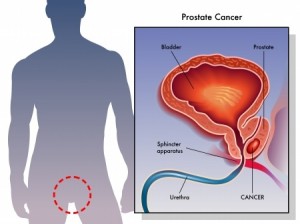Major contributors to prostate cancer
The prostate gland, located between the bladder and the penis, may merely be the size of a walnut, but it has the power to help create life, and take life away as well.
The prostate is responsible for producing the fluid that helps the male sperm on its quest to fertilize the female egg. Yet, when things go wrong, this life-giving organ can become cancerous.
The Department of Health (DOH) revealed that prostate cancer is now ranked as the fourth most common type of cancer among males. According to the 2010 Cancer Facts and Figures, about 2,712 new cases are diagnosed yearly in the Philippines, with 1,410 of them leading to death. The incidence rate starts to increase sharply among those aged 55 and up.
Last week, the DOH offered free digital rectal examination—the most common way to check the prostate—to males aged 40 and above.
However, the digital rectal examination serves only to detect signs of prostate cancer. The bigger question is, how do we prevent prostate cancer?
Article continues after this advertisementStudies have shown that high prostate cancer rates primarily exist in societies with “Western” diets and lifestyles. In developing countries, men who adopt Western eating practices or move to Western countries have a higher incidence of prostate cancer.
Article continues after this advertisement“These disease patterns are similar to those of other diseases of affluence. Mostly, this tells us that although prostate cancer certainly has a genetic component, environmental factors play the dominant role,” asserted T. Colin Campbell, PhD, Jacob Gould Schurman professor emeritus of Cornell University’s nutritional biochemistry, who authored the “China Study.”
Campbell said that one of the most consistent, specific links between diet and prostate cancer has been dairy consumption. A 2001 Harvard review of the research which showed 12 of 14 case-control studies and 7 of 9 cohort studies has observed a positive association for some measure of dairy products and prostate cancer. The studies were published in Epidemiologic Reviews 23 (2001): 87-92 “Dairy products, calcium, and vitamin D and risk of prostate cancer” by J.M. Chan and E.L. Giovannucci.
Dietary predictors
“This is one of the most consistent dietary predictors for prostate cancer in the published literature,” quipped Campbell.
Another review of published literature, Cancer Causes and Control 9 (1998): 567-582 “Dietary influences of 1, 25 (OH)2 vitamin D in relation to prostate cancer: a hypothesis by E. Giovannucci,” says: “In case-control and prospective studies, the major contributors of animal protein, meats, dairy products and eggs have frequently been associated with a higher risk of prostate cancer … (23 studies cited). Of note, numerous studies have found an association primarily in older men (six studies cited) though not all (one study cited) … The consistent associations with dairy products could result from, at least in part, their calcium and phosphorous content.”
Dr. Neil Nedley, M.D., author of “Proof Positive,” cited an Adventist Health study which showed that “the more meat, milk, eggs and cheese a man ate, the greater his risk of dying of prostate cancer.”
A study published in the American Journal of Epidemiology 1984 Aug: 120 (2): 244-250 “Western Diet, Obesity, and risk of fatal prostate cancer” by D.A. Snowdon, R.L. Phillips, W. Choi cited: There was dose-response relationship such that the more of these products consumed, the greater the risk of fatal prostate cancer. Those consuming the largest quantities of animal products had 3.6 times the risk of dying from prostate cancer.
Similar conclusions had been drawn in a Harvard-based Health Professionals Follow-up Study (with over 50,000 men studied). The study was published in the Journal of National Cancer Institute 1993 Oct. 6; 85 (19): 1571-1579 titled “A prospective study of dietary fat and risk of prostate cancer by E. Giovannucci, E.B. Rimm, et al.”
